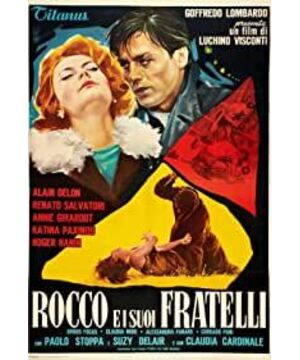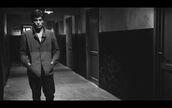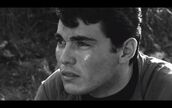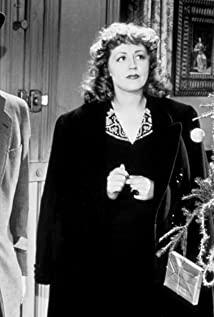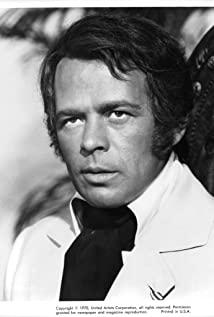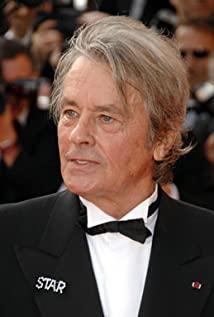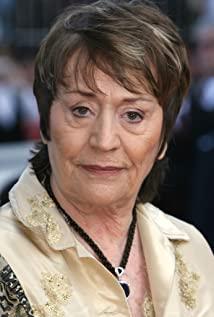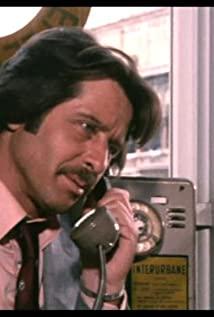In the 1960s when Italy’s urbanization and industrial civilization were rapidly developing, economically backward rural people were attracted to the city. The story unfolds through the life of the five brothers of the Rocco family, allowing us to see the different stages and emotional changes of rural immigrants integrating into the city.
The elder Vincent was the first person in the family to enter the city. He said at the engagement party, "I never want to go back to my hometown anymore, I want to build my own family here." However, due to the conflict between his big country family and the family of his fiancee in the city, he was driven out by his prospective parents-in-law.
With no place to live, he lived at the old man who was taking care of the construction site and said annoyedly, "I don't know how to support the family and how to pay tomorrow's rent." The old man said optimistically, "There are so many houses in Milan, like mushrooms after the rain." Yes, there are houses everywhere in the city, but there is no shelter for him, like many of his fellow villagers.
He took the family and moved to the basement. The neighbors watched their family move there, calling them "Africans" behind their backs, and said mockingly, "I know, they want to pursue happiness here." It can be seen that the typical phenomenon of urban people's exclusion of rural immigrants at that time.
When a family cheers because of the heavy snow, it is not because of the beauty or romance that the snow evokes, but because the heavy snow means that everyone can get the job of shoveling the snow that day. The style of Italian neorealism here is obvious, earning a living drives poor people.
After some setbacks, the boss finally resolved the conflict between the two families due to "Fengzi getting married" and established his own family in the city. The character of the boss is rather vague, but his life difficulties in the early stage of impoverished immigrants are as obvious as labels.
After the second child Simon entered the city, he was completely indulged in the charm of the big city, and accepted the city's vices irresistibly. In order to please the girl Nadia, he even learned to steal. Losing his sense of family responsibility, he did not work hard, but blindly gambled, drank, and haunted Nadia who did not love him in order to satisfy his desires, and finally fell into the abyss of sin. He was swallowed by the typical evil of the city.
Contrary to the second child, the third child Luo played by Alain Delon is kind enough to make people feel sorry for him. He loves his hometown, but he followed his family to the city and practiced boxing to accompany his brother. He was able to sacrifice everything for the family. But his strong love and sense of responsibility for his family made him completely lose his personal autonomy. In order to help his brother Simon cheer up, he gave up his love; in order to pay his brother's debts, he gave up his desire to return to his hometown and the company signed a long-term contract. Finally, at the banquet celebrating the victory, he finally explained his selfless sacrifice. 'Country house builders will throw bricks on the shadow of the first passerby, and some people have to make sacrifices for the sake of the strength of the house. '
Siro, the fourth wise representative, did not agree with Roco's sacrifice, and even more mercilessly asked Simon to be responsible for his actions. He has a girlfriend who is about to get married and works in a stable factory. He even forgot the dialect and really blended into the city.
Ciro said to Luca, who represents the new generation; "Roco may not be able to go back to their country, maybe he can go back, and life there will be fairer and better then. And finally Luca touched Roco. Going forward, I think it’s the director’s beautiful vision. Luca will eventually return to a better country with Rocco’s love for his hometown.
Watching such an Italian movie in the 1960s, there is no unfamiliar feeling of isolation. On the contrary, familiar situations of'déjà vu' often appear. It can be seen that excellent movies can often transcend the differences of countries and times, and infect the audience with their abundant artistic vitality. After watching the movie, you can understand the director Visconti’s Venice movie at that time. At the festival, because the film only won the jury's award, he was so angry that he refused to stand up and accept the award.
View more about Rocco and His Brothers reviews


